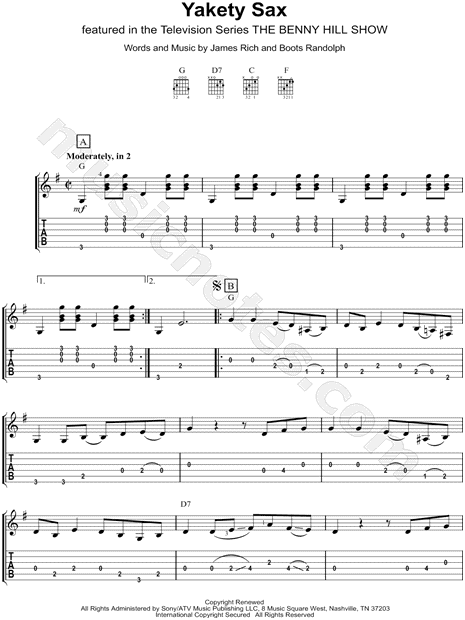
While working with a Western Band in Denver, Colorado, Atkins came to the attention of RCA Victor. He had a solo spot on the Opry for a while but when that was cut Atkins moved on to KWTO in Springfield, Missouri, and despite the support of executive Si Siman, soon was fired for not sounding country enough. That single, "Guitar Blues," was fairly progressive, including as it did, a clarinet solo by Nashville dance band musician Dutch McMillan with Owen Bradley on piano. He also recorded a single for Nashville-based Bullet Records that year.

Atkins made his first appearance at the Grand Ole Opry in 1946 as a member of Foley's band. Travelling to Chicago, he auditioned for Red Foley, who was leaving his star position at the WLS National Barn Dance to join the Grand Ole Opry. Atkins's shy personality worked against him, as did the fact that his sophisticated style led many to doubt he was truly "country." He was fired often but was soon able to land another job at another radio station due to his unique playing ability. After six months he moved to Raleigh and worked with Johnnie and Jack before heading for Richmond, Virginia, where he performed with Sunshine Sue Workman. There he played fiddle and guitar with singer Bill Carlisle and comic Archie Campbell as well as becoming a member of the station's "Dixieland Swingsters," a small swing instrumental combo.Īfter three years, he moved to WLW in Cincinnati, Ohio, where Merle Travis had formerly worked. The result was a clarity and complexity that became his unmistakable sound.Īfter dropping out of high school high school in 1942, he landed a job at WNOX radio in Knoxville. Whereas Travis's right hand utilized his index finger for the melody and thumb for bass notes, Atkins expanded his right hand style to include picking with his first three fingers, with the thumb on bass. This early influence dramatically shaped his unique playing style. Atkins did not have a strong style of his own until 1939 when (while still living in Georgia) he heard Merle Travis picking over WLW radio. His half-brother Jim was a successful guitarist who worked with the Les Paul Trio in New York. Atkins was self-taught, and later in life gave himself (along with Tommy Emmanuel, Jerry Reed and John Knowles) the honorary degree "CGP", standing for "Certified Guitar Player". He became an accomplished guitarist while he was in high school.

Forced to relocate to Georgia to live with his father due to a near-fatal asthma condition, Atkins was a sensitive youth who made music his obsession. He started out on the ukelele, later moving on to the fiddle, but traded his brother Lowell an old pistol and some chores for a guitar when he was nine. He created, along with Owen Bradley, the smoother country music style known as the Nashville sound, which expanded country music's appeal to include adult pop music fans as well.Ĭhet Atkins was born in Luttrell, Tennessee, and grew up with his mother and two brothers and a sister, he being the youngest.

Atkins produced records for Eddy Arnold, Don Gibson, Jim Reeves, Connie Smith, and Waylon Jennings. His virtuoso picking style - inspired by Merle Travis, Django Reinhardt, George Barnes and Les Paul - brought him admirers both within and outside the country scene. Chester Burton "Chet" Atkins (J– June 30, 2001) was an influential guitarist and record producer.


 0 kommentar(er)
0 kommentar(er)
